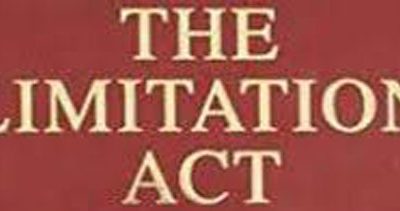
Partition Suit Between The Co-Sharers
Partition Suit in Bangladesh
Partition suit determines the share of the co-sharers inter se ( 17 CWN 128) The partition in a suit is an equitable right, and it should be seen while decreeing a partition suit, how much equity can be done to the parties without asking them to go to another suit (11DLR 355). A person is not entitled to oust his co-sharer from a portion of land in exclusive possession of the latter on the plea that he has got title to every inch of joint property. If he feels that his co-sharer is in possession of some land in excess of shares his remedy is in a suit for partitio (5 DLR 39,41 DLR (AD)92,9 BLD(AD)67,9BLD368.)
Partition Act ,1893
The provisions of law as contemplated u\s. 4 of the partition Act, one of the salient features of a suit for partition is that it is between co-shares and in respect of ejmalli property. An amicable partition is no partition in the eye of law…….A co-sharer in possession of land less than his share is always entitled to pray for partition by bringing a suit in a court of competent jurisdiction and if his claim is proved he is entitled to get land partitioned through court and defiantly, a co-sharer in possession of excess land than his share is bound to part with the same ( 27 BLD (AD) 239=12MLR (AD)347=1XP(AD)114=60 DLR(AD)38)
Origin/source of partition suit:
Someone mistakenly presupposes that the partition Act, 1983 is the source and origin of partition suit. But from ordinary reading of the partition Act, 1983, we understand that the Act is only for doing partition of some impartibles by sale through courts and also for pre-emption of homestead lands if any portion thereof is sold to third parties. Except these two perspectives we find nothing more in this Act.

Therefore, though some one mistakenly supposes that the suits for partition are creatures the partition Act, 1983, we cannot articulate that the partition Act is the source of partition suit.
So far our study, moreover to say, we find no specific statutory provision of law respecting origination and source of partition suit. It is pertinent to mention that though there is no single specific statutory or codified law respecting partition of joint propertion is a very commonly practiced formed suit in our country. In the absence of statutory laws, the judges of the highet courts of this sub-continent have done a good deal with this branch of law and thereby a strong, standard and regular practice of laws has been sttled now. The dictums as established by the judicial verdicts, which are based on condiderations of equity and convenience, are the main source of the suits for partition. Whatsoever, there are some statutory provisions in several statutes scattered, e.g. sec. 54, Order 26 rr. 13 & 14 of CPC, sec. 44 of T.P. Act, art. 144 of Limitation act, secs. 7 ViA, 7 iv (c) of the court Fees Act, ect. But these statutes do not deal With the suits for Partition wholly; but play some parts only. Besides, the dictums established by the judicial verdicts is another core source of the suits for partition.
However, we may bring that sec. 143B of the state Acquisition and Tenancy Act reads that: “(1) persons acquiring immovable property by inheritanece according to their respective personal laes shall amicably effect partition of the property among them after the death of the propositus. After such partition, an instrument of partition parties and shall be registered under the Registration Act, 1908.”
From the provisions of this section it can be construed that the persons who acquired immovable property jointly by inheritance they may get those properties partitioned amongst them amicably; and if any of the parties of them denies such amicable partition, being civl right such right can be cognizance by civil court u/s. 9 of CPC, may resort the shelter of civil court for getting the same. Therefore, it is ours study that under the present laws of the Land this sec. 143B of SAT Act should be treated the origin of partition suit. We may get suppot in this favour that— If anybody is aggrieved by such exclusive possession of a portion of joint land let him go to the partition suit for his remedy ( 12DLR708,6BLD 155)



















Leave a Reply
You must be logged in to post a comment.